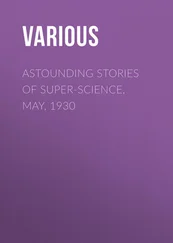“Just for not singing about Stalin?” Sonya said.
“People were arrested for less. Tell a political joke and you just signed your arrest warrant. There was a rumor of another reason — actually, many conflicting rumors — but rumors were a dangerous thing. People kept their mouths shut.”
“Love’s a bitch and life’s her lackey,” Sonya’s father said.
“Tolik, not for Sonya’s ears.”
“I’m sure she’s heard worse, in their kommunalka .” He poured himself more vodka. “The important question was not for what, Sonya, but for how long. With rights of correspondence, or without. If not, the family wouldn’t even know where you were, whether you were dead or alive.”
“Yes, it was like that. ‘If there is a person, an Article will be found for him.’” Deda Misha sighed. “So, Makin. After all the years of my friendship with him, I can confidently say that like so many artists, he was not practical. He didn’t know what was good for him. A tremendous shame, for someone of his stature.”
“Get to the point, comrade general,” Sonya’s father said.
Deda Misha waved him away. “Makin’s sentence was cut short, for good work and behavior. Afterward, he lived in Magadan with three cats. Everybody knew who he was, but many pretended not to. Even the walls have ears, that’s what we said. Housemates behind our thin walls could’ve been working surveillance for the KGB. I’d seen Makin on the staircase of our building many times. He always looked so fashionable — in a long checkered coat and a silk scarf. His cologne lingered on the stairs long after he’d passed. He still had foreign friends and admirers, who closed their eyes to certain of his proclivities. Just like I later would. They couldn’t help him move back to Moscow or restore his former glory, but they could procure for him an Italian scarf, a French beret.
“Every weekend, your baba Mila and I enjoyed music filtering down through the thin floor from his soirées. He played piano, his guests brought guitars, violins — and he sang, of course, he sang his long swan song. He was only in his mid-forties then and already starting to look old. His black gypsy eyes had sunk in and he was losing hair, but there was still an aura of nobility on his face, the way certain artists can look no matter how much they suffer. By the way, in ’43, when he was still in the camp, he was flown into Yalta for several hours.”
“Tehran,” Sonya’s father said.
“Yes, yes, Tehran. Yalta Conference was later. He was flown to Tehran under guard. It was Churchill’s birthday, and all the famous singers in the world gathered to perform for him. Churchill’s son had organized the concert and personally requested Makin. He, of course, had no idea that Makin was in the Gulag. As Makin was walking off the stage after his performance, he ran into Ida Shteynberg, a Yiddish singer he knew in his youth in St. Petersburg — she immigrated to Britain before the war. While everyone was applauding, she told him he must walk up to Roosevelt or Churchill, or even Churchill’s son, and ask to be taken for political asylum. It was his only chance for a free life. She even taught him how to say it in English. Makin didn’t do it.”
“But why?”
“At that point he still thought he would be rehabilitated and continue to be a star in his homeland. In America or England, who would he be? Artists need their audience. Without it, they wilt like unwatered flowers. When you are open-minded and listen, it’s not hard to figure people out.”
“He told you all of this?” Sonya said.
“He didn’t like talking about the past, Sonya. Understandable, with a past like his. Somebody else had told me.”
“ Nu, honest folk, I am off to the land of dreams and fools.” Sonya’s father kissed her on the top of her head. “Don’t torture her for too long, Papa. Good night to all.”
“Good night,” Sonya said. She wanted to say something more — something comforting yet neutral — but couldn’t think of it fast enough. She had this feeling ever since her father had returned from America, like she was constantly chasing a loose thread.
“Good night, Tolik. Don’t worry, she’ll see what a mistake she’s made.”
Her father shrugged his shoulders and winked at Sonya.
She watched him disappear into the darkness of the living room. He wore an old woolen sweater he’d left in Magadan when he went to America. It was too small for him then, and Oleg had worn it when he lived with Sonya and her mother. Now it fit. For a whole year, Sonya had told her father on the phone what she wanted him to send with weekly flights: strawberry milk, sushi, cream-filled toaster strudels, yellow legal pads, highlighters. She had talked about school, complained about Faina Grigorievna and practicing piano, and described the ballroom dresses she wanted for the competitions. As if those were the most important things, the only things.
“I was never home in those years, that’s how hard I worked, Sonya,” Deda Misha continued. “Your father was just a baby, very fussy. Baba Mila noticed that in the evenings the singing from Makin’s room soothed Tolik to sleep, so during the day she began to play the one Makin record we had over and over. It had all of my favorite songs: ‘Friendship,’ ‘Autumn,’ ‘Good-bye, My Gypsy Camp.’ You know, after Makin’s first arrest, many of his records were pulled from stores, confiscated from people, and melted. He even burned his own records.”
“Why?”
“I think because he was depressed, broken. One weekend, as I passed him on the stairs, I told him about his youngest fan in the person of our baby, Tolik. You should’ve seen the way his gloomy face lit up — balsam on my heart. If you’d like, he said, I’d be happy to sing a song for your son; nothing would give me more pleasure. He had a very pleasant voice up close, very aristocratic. It was surreal to me, a lad from a Ukrainian hutor and now talking to someone who had personally known Stalin and Mayakovsky. I thought about another point quickly: Was he saying this to be polite? Who might see him going into my room and what conclusions would they draw? Who would they report to? I decided to take the risk. A person is a person. A bird flies, a singer sings, and that’s all there is to it. Never pass up an opportunity to do another person good, Sonya, even if it costs you a little extra. It will all be tallied up in the big book.
“‘Come in now, Comrade Makin, if you’re not in a hurry,’ I told him. ‘My wife just made a wonderful plov with beef.’
“Baba Mila almost fainted when she saw Makin in our room. She rushed up to him and kissed his hand as if he were a king. She later told me she knew this was inappropriate, but, she said, she did it instinctively. She didn’t know how else to express her heartbreak over Makin’s situation. Whatever anybody decreed, she said, Makin was lonely in a way that only few could truly understand. At that point many people still remembered him — their youth was colored by his beautiful melodies — but it was they who benefited from this, in safety, not he. Such a kind and wise woman your grandmother was. She comes to my dreams almost every night.” Deda Misha looked down at his lap, silent.
“I miss her, too,” Sonya said, although the time she remembered most clearly was the summer of Baba Mila’s death. Deda Misha had taken her out of the hospital and was administering natural therapy at home. Sonya remembered being scared of her grandmother’s legs, which had become as thin as her own. And she was scared to ask Deda Misha whether it was true that he forbade anyone to tell Baba Mila that she had cancer, for fear of upsetting her. That’s what Baba Olya had told her.
Читать дальше
Конец ознакомительного отрывка
Купить книгу












